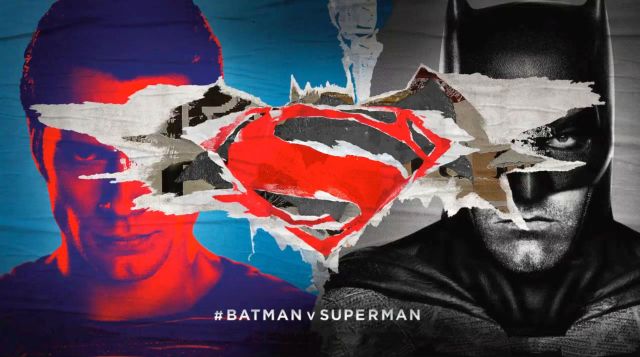Batman v Superman: Dawn of Justice (now BvS) is a strange film. Not psychedelic strange. Not even a good strange. In fact, it’s not really a film at all. BvS is a series of well directed scenes containing the DC Comics characters Batman and Superman. But even then, these characters bare very little resemblance to the comic book characters on which they are based. The ‘film’ is clearly supposed to be the launch-pad to Warner Brothers’ DC Expanded Universe (DCEU), introducing audiences to the different members of the Justice League before the eponymous 2018 film. In doing this, however, Batman v Superman: Dawn of Justice forgets to be anything more than an average film in its own right.
From the get-go Batman v Superman addresses the controversy over the destruction caused in 2013s Man of Steel, by showing the cataclysmic events from Bruce Wayne’s (Ben Affleck) perspective, as he struggles to save innocent people from the rubble of the Kryptonian invasion. This serves as the catalyst for Batman and Superman’s feud; Wayne believes that Superman is too powerful to act autonomously and that he must be brought into check. Unfortunately, this is the only plot-line of several that is properly explained throughout BvS, as the next hour features a series of choppily edited scenes that are ultimately rendered pointless by the end of the movie.
Throughout this montage of seemingly disparate scenes the audience is introduced to Lex Luthor, portrayed manically by Jesse Eisenberg. He feels similarly to Wayne, not trusting that Superman’s absolute power can remain pure, although the reasons for this are very thinly explained. Had Luthor’s blatant megalomania been explained earlier in the film, perhaps by going deeper into his role in rebuilding Metropolis following Man of Steel, then his desire to pit the eponymous heroes against each other later-on may have seemed less random than it ultimately did.
However, the most murky plot of all is Superman’s. While Clark Kent struggles to come to terms with just how divisive his alter-ego has become, he is made aware of a bat vigilante in Gotham via a news report showing a convicted human trafficker branded with a bat symbol. That is all. Superman goes after Batman because he solved a crime. People were saved. In fact, this might be considered ‘heroic’. Superman goes after Batman because he saved the day. This is where BvS loses steam, while the fight between these two heroes is visually stunning, the motivation behind each blow is lost in the overly convoluted plot.
It’s difficult to blame a screenwriter for the failings of a film, as the script is subject to changes made by everybody involved except the one who wrote it. With that being said, the fight between Batman and Superman is brought to a grinding halt by what can only be described one of the laziest and flat-out ridiculous lines in superhero movie history. This is followed by a swift one-eighty in the film’s plot as Lex Luthor manages to summon Doomsday necessitating a partnership between the heroes literally minutes after they were trying to kill each other. In the CGI-heavy final fight we are introduced to Gal Gadot’s Wonder Woman, another character spoiled by the promotional material, draining her entrance of any impact.
Ben Affleck’s story as Batman truly is a diamond in the rough. His chemistry with butler Alfred (played excellently by Jeremy Irons) gives way to some of BvS’ only moments of levity, a welcome relief from the dour tone Zack Snyder chose to employ. Batman using guns to kill people was slightly jarring and kind of wrong, but was likely a decision made to reflect an older Bruce Wayne’s more word-weary approach to crime fighting. Hopefully this is the case, as the narrative intrigue of Batman’s character comes from the fact that his villains are underdogs but he refuses to kill them.
Ultimately, Batman v Superman: Dawn of Justice is a film that aims too high for its own good. In trying to introduce the world to a new superhero team, Zack Snyder and co. have made the Justice League a harder sell, and Warner Brothers’ half-baked attempt at catching up to Marvel Studios may remove them from the race entirely. The future of the DC Expanded Universe rests of the shoulders of David Ayer’s Suicide Squad due out later this year, and Wonder Woman’s solo film slated for a 2017 release. While moments of BvS shine through, they are buried within the rubble of thinly developed characters, poor narrative decisions and a plot that only attempts to serve future instalments.
Rating: 4/10

Leave a comment